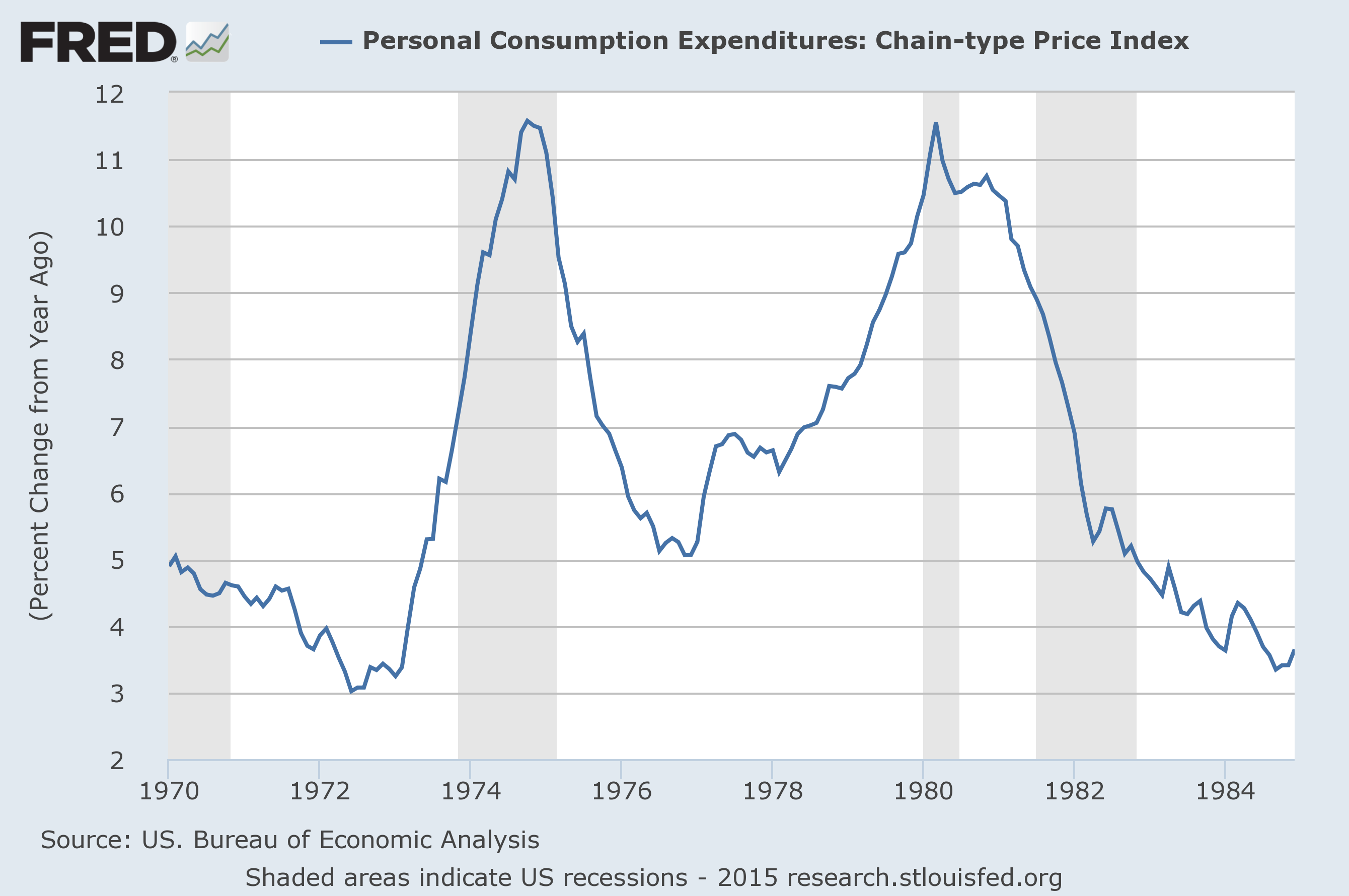January 12, 2015
Robert Samuelson uses his column today to tell readers that he is very unhappy with Paul Krugman. The specific complaint is that Krugman gives Paul Volcker credit for reducing inflation in the early 1980s, rather than Reagan. (Actually, I thought Krugman was giving Volcker credit for the recovery from the recession, which Krugman said was primarily due to lower Fed interest rates rather than Reagan tax cuts.)
Anyhow, Samuelson insists that Volcker has to share credit with Reagan, since Reagan gave him the political cover to carry through policies that pushed the unemployment rate to 10.8 percent and ruined millions of lives. I’m inclined to agree with Samuelson on this one. A different president might have put pressure on the Fed chair to back away before his policies had done so much damage.
Where Samuelson is wrong is in his characterization of the need for the Volcker policies. He tells readers:
“From 1960 to 1980, inflation — the general rise of retail prices — marched relentlessly upward. It went from 1.4?percent in 1960 to 5.9 percent in 1969 to 13.3 percent in 1979. The higher it rose, the more unpopular it became. People feared that their pay and savings wouldn’t keep pace with prices.
“Worse, government seemed powerless to defeat it.”
Actually, the inflation picture was not quite as bad as Samuelson describes. He apparently is referring to the measure using the official consumer price index (CPI), which had a well-known measurement error (more in a moment) that led to an exaggerated measure of inflation. In fact the inflation rate using the now popular consumer expenditure deflator peaked at just over 11 percent.

This graph is worth a careful examination. Note when the inflation rate began its long sharp decline. That’s right, it was in June of 1981, roughly six months before Volcker’s high interest rates threw the economy into a recession. This means that inflation was already falling rapidly when Volcker decided to make the tough call of throwing millions of ordinary workers out of their jobs.
The most obvious explanation for the drop in inflation is the drop in world oil prices. These had gone from less than $10 a barrel to 1978 to a peak over $40 a barrel in 1979, as Iran’s oil was pulled off world markets due to the Iranian revolution. In response to the surge in oil prices, new sources of oil came on line all over the world and people began to consume less, both in response to higher prices and government conservation measures (e.g. fuel mileage standards).
The drop in oil prices would have lowered inflation regardless of what Volcker did, although the recession undoubtedly did push down inflation further and faster than would have otherwise been the case. This was at the cost of a sharp drop in wages for most of the workforce and also the permanent loss of employment for many. Even a decade after the Volcker recession, employment among prime age men (ages 25-54) was still a full percentage point below the pre-recession level.
The other point about the inflation of the late 1970s is that it was in part driven by the measurement error in the official CPI. The CPI overstated the annual inflation rate by roughly 1-2 percentage points for several years in the late 1970s. This likely had consequences for the actual inflation rate since tens of millions of workers had contracts that linked their wages to the official CPI. This meant that errors in measurement would have been passed on in higher wages and generally then in higher prices. It is reasonable to believe that without this fluke in measurement, inflation would not have risen quite as much as it did during these years.
Anyhow, if Samuelson wants to Reagan to share the blame for an extremely painful recession, he will get no complaints from me.
Note: Typos corrected — thanks folks.
Addendum: Carter Lost the Presidency.
Barkley Rosser reminds me in his comment of the absurdity of crediting Reagan for his political courage with Volcker. Reagan faced a recession in the middle of his term. There is plenty of research that people do not hold a president responsible for bad things that happen in year 2 of their presidency if the economy has recovered by year 4, which was of course the case. By contrast, Carter appointed Volcker in year 3 of his presidency and his actions caused the economy to look very bad in year 4. We had a very short steep recession in the first half of 1980 which went far towards costing Carter the election.
It speaks volumes to the ability to rewrite history when Reagan can be praised for his political courage in relation to Volcker. It was Carter who lost his presidency because of the guy.







Comments